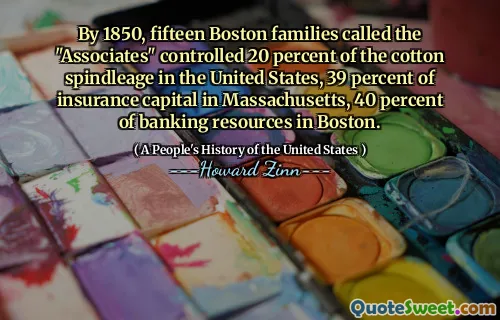My viewpoint, in telling the history of the United States, is different: that we must not accept the memory of states as our own. Nations are not communities and never have been. The history of any country, presented as the history of a family, conceals fierce conflicts of interest {sometimes exploding, most often repressed} between conquerors and conquered, masters and slaves, capitalists and workers, dominators and dominated in race and sex. And in such a world of conflict, a world of victims and executioners, it is the job of thinking people, as Albert Camus suggested, not to be on the side of the executioners.
Howard Zinn presents a distinct perspective on American history, arguing against the idea of nations being unified communities. He believes that history should not simply reflect the narrative of states, which often masks the ongoing conflicts within society. These conflicts, whether between conquerors and the oppressed, or different social classes, highlight a landscape of struggle that is often overlooked in traditional historical accounts.
Zinn emphasizes the importance of acknowledging the varied experiences of those who have been marginalized, rather than accepting a singular, sanitized version of history. He aligns with the thoughts of Albert Camus, stating that intellectuals and thinkers should strive to side with the oppressed rather than the oppressors, urging a more critical examination of the past that honors the complexities of human experiences in the face of power dynamics.







